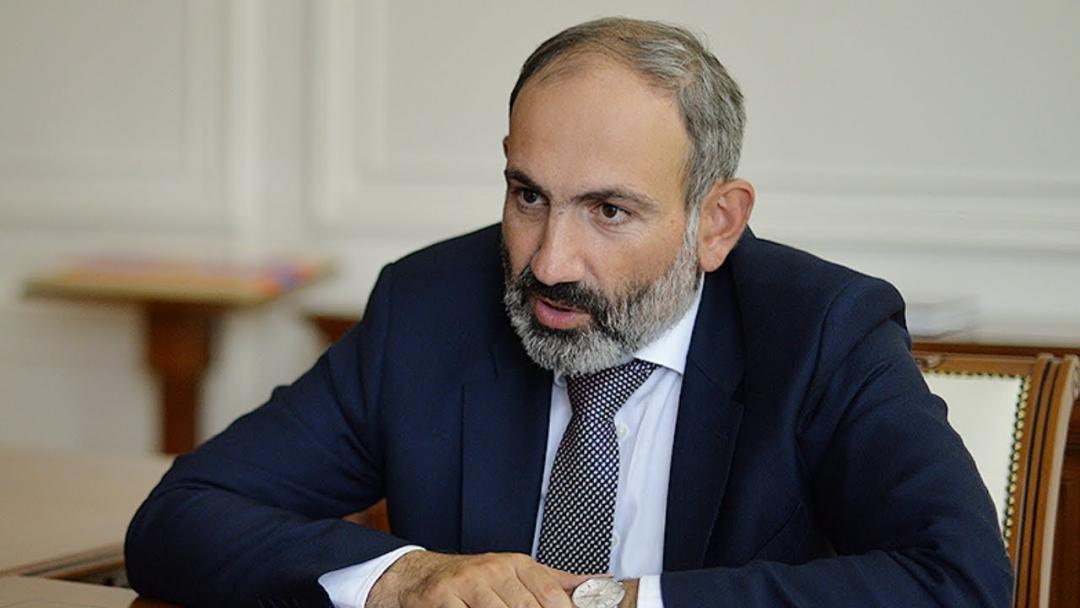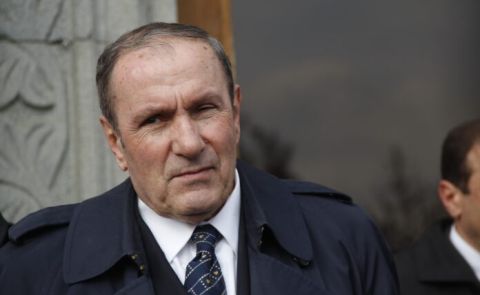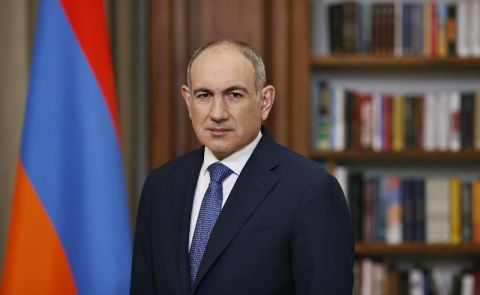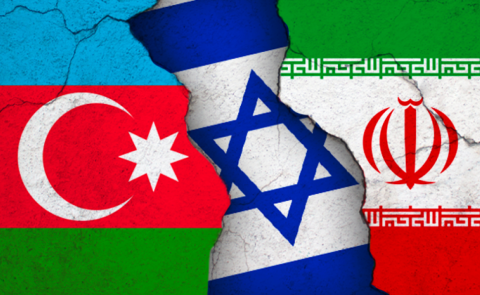
Nikol Pashinyan on Lachin Corridor, Nagorno-Karabakh Armenians and Peace Agreement

On November 10, responding to the statements of the President of Azerbaijan at the government meeting, Armenian Prime Minister Nikol Pashinyan stated that the President of Azerbaijan is trying to create fictitious grounds to close the Lachin Corridor under the pretext of Armenia not fulfilling its obligations, to surround the Nagorno-Karabakh Armenians and subject them to genocide and deportation.
Regarding Ilham Aliyev's recent remarks made in Shusha, he said: "Two days ago, on November 8, 2022, the statements made by the President of Azerbaijan, Ilham Aliyev, once again proved that the geopolitical ambitions of the Azerbaijani authorities continue to be a threat to the security and stability of the South Caucasus and the wider region." He added that Aliyev not only threatens but is already planning the genocide of Nagorno-Karabakh's Armenians. "This intention is also expressed in the comments of the President of Azerbaijan about the terms of the deployment of the peacekeeping troops of the Russian Federation in Nagorno-Karabakh, which in turn grossly violate at least three of the statements made in the tripartite format. The tripartite statement of November 9, 2020, states that peacekeepers are deployed in Nagorno-Karabakh for five years, with the automatic extension of successive five-year periods. I repeat: automatically extended. This essentially means that peacekeepers are stationed in Nagorno-Karabakh indefinitely until all issues related to the rights and security of Nagorno-Karabakh Armenians are addressed, and all security concerns of Nagorno-Karabakh Armenians are addressed," Pashinyan stated.
Regarding corridor controversies with Azerbaijan, the Armenian Prime Minister stated: "The President of Azerbaijan is trying to create fictitious grounds for closing the Lachin Corridor, encircling the Armenians of Nagorno-Karabakh, and subjecting them to genocide and deportation under the pretext that Armenia is not fulfilling its obligations. Points 3 and 6 of the tripartite statement on the Lachine Corridor say, "Lachine Corridor." This is a quote, meaning the Lachine Corridor is directly named as such. In point 9 of the same statement, there is no cross-referencing, no mention of any territory of the Republic of Armenia, and no mention of any place name." Pashinyan emphasized, "In other words, there is no question of control over our sovereign territory and the alienation of any of our sovereign functions, and there cannot be; it is about exercising control over the implementation of agreements, and by agreement, we must mean the statement, because naturally, any other agreement cannot be, and only this can be done by the border guard service of the Federal Security Service of the Russian Federation."
Regarding the so called Zangazur corridor, Nikol Pashinyan stated: "The Republic of Armenia has always been ready and is still ready to provide such communication, and for this purpose, the draft resolution of the Armenian government has been put into circulation on the creation of checkpoints on the Armenia-Azerbaijan border. As a result of the adoption of this decision, Azerbaijan can now receive communication via the roads of Armenia with the Autonomous Republic of Nakhchivan. That decision is not accepted for one reason: Azerbaijan does not want it that way. This means that Armenia fully fulfills its obligation, and Azerbaijan does not want to take advantage of the opportunity. Moreover, such a refusal is completely incomprehensible. If Azerbaijan wants peace and is ready for peace, as it declares, then let's open those checkpoints and create opportunities for people." He added: "The fact that the President of Azerbaijan himself broke the agreement reached on December 14, 2021, in Brussels, in the presence of the President of the Council of the European Union, Charles Michel, needs to be specially emphasized, and there was also a public statement about it. According to that, the leaders of Armenia and Azerbaijan agreed to start the rehabilitation works of the Yeraskh-Ordubad-Meghri-Horadiz railway and clearly stated that the railway would operate by the laws of both countries."
Pashinyan also talked about the peace agreement with Azerbaijan. He stated: "A few days later, the President of Azerbaijan refused to sign the document confirming this agreement. It seemed like a very simple situation; all was needed was to put what had been publicly announced on paper and just sign, but Azerbaijan refused this action. Even today, the President of Azerbaijan refuses to do so, and I officially announce that I am ready to sign the document confirming this agreement today. We are talking about the agreement, which I posted on my Facebook page and made a statement on this topic at the government session, gave instructions, and so on." Pashinyan said there is no Armenian army in Nagorno-Karabakh; there is the Nagorno-Karabakh defense army, which is perhaps a serious obstacle to implementing the genocidal policy. "My perception is that the Armenians of Nagorno-Karabakh have an army only because of the danger of being subjected to genocide," he added.
Regarding recent tension between Azerbaijan and Iran, Nikol Pashinyan said: "And now the authors of these practices want to accuse Armenia of anti-Islamic practices, while our respect for the Islamic religion and civilization is unquestionable. The Republic of Armenia and the Armenian people have fraternal feelings and partnership relations with dozens of Islamic countries and peoples. At the same time, with its practices mentioned above, Azerbaijan reminds me of Al Qaeda and the Islamic State, which discredit Islam." He added that this would not be a problem if it did not occur in an environment where international and regional security faces serious challenges. "If we pay attention to the speeches of the President of Azerbaijan, he threatens everyone: Russia, the United States of America, France, Iran, and the European Union. Azerbaijan also continues to obstruct the process of normalizing relations between Armenia and Turkey, which can undoubtedly contribute to regional stability," the Armenian Prime Minister concluded.
See Also


Armenia Strengthens Ties with Council of Europe

Former Armenian President Labels Pashinyan a Traitor and Blasphemer

Pashinyan Addresses Key Issues on Church, National Future, and Fund Allegations

Azerbaijan Calls for 'Dialogue and Diplomatic Resolution' Between Israel and Iran

